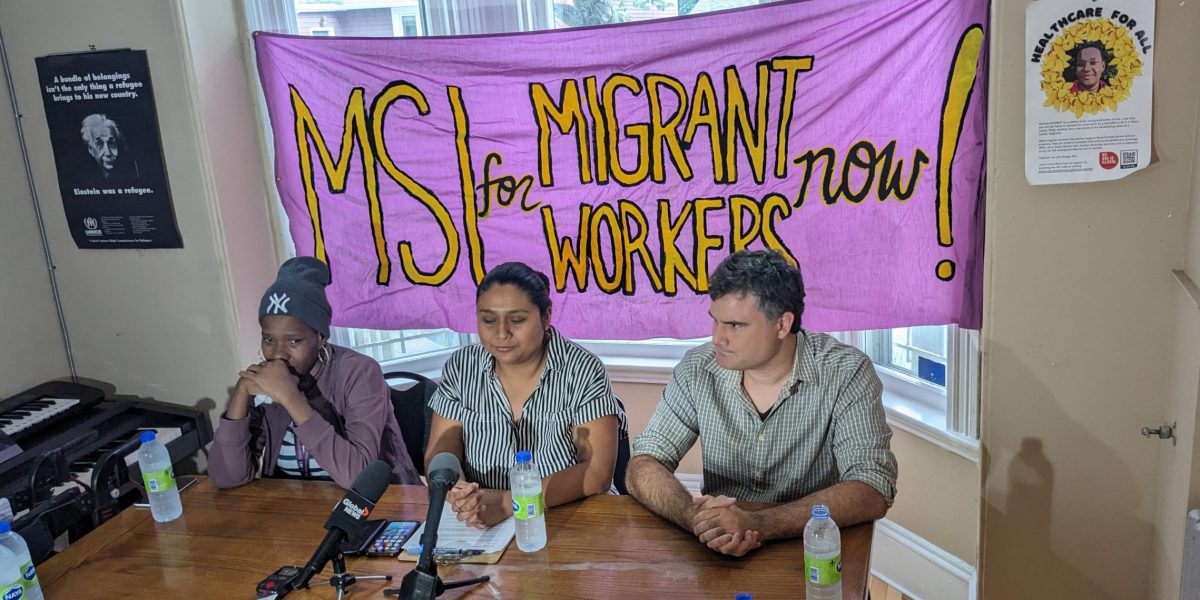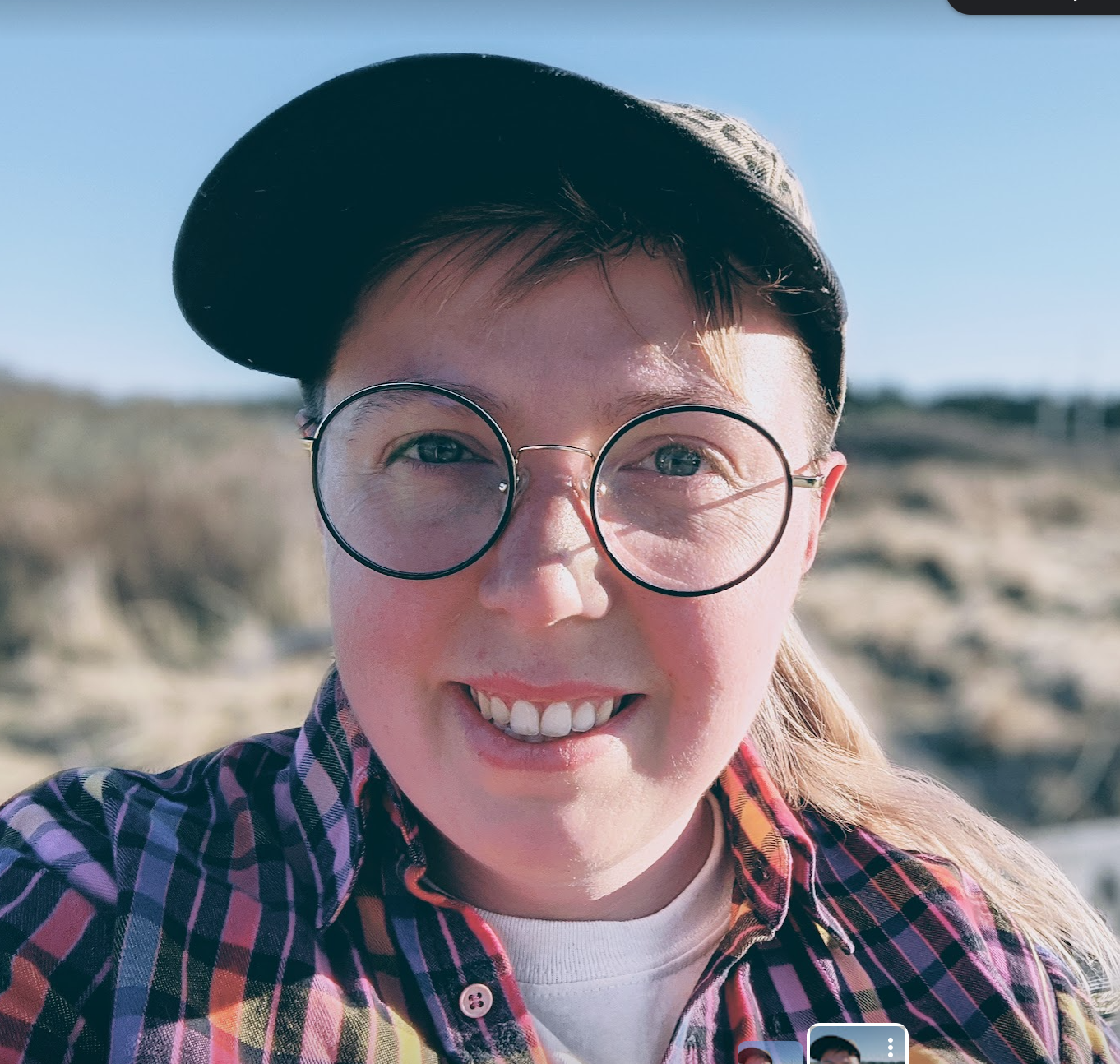Migrant leader and cancer survivor Kerian Burnett can finally take a breath after the federal government approved her application for health care coverage under the Interim Federal Health Program, but Kerian’s story reveals how the fight for health – and status – for all is a life or death struggle.
Kerian’s story: “I had to fight.”
Kerian came to Nova Scotia from Jamaica as part of the Seasonal Agricultural Worker Program (SAWP) to work on a strawberry farm. While in Nova Scotia, Kerian was diagnosed with stage four cervical cancer, devastating news for the mother of six and grandmother of two.
As a result of her illness, Kerian was fired from her job. Her doctor advised her to remain in Canada in order to receive treatment, however, as a migrant worker under the racist and exploitative Seasonal Agricultural Worker Program, Kerian’s health insurance, housing, and immigration status were all tied to her employer.
While in some provinces, such as Ontario and Quebec, migrant workers receive public health insurance upon arrival, this is not the case in Nova Scotia. Workers who come to do essential agricultural labour under the SAWP are provided with private insurance through their employer, however when workers like Kerian are fired for being sick, they lose their health coverage at the exact time when they need it most.
Kerian took the brave step to remain in Canada whatever the risks in order to get the life-sustaining treatment she needs.
“It has definitely been a long road and it was challenging at times,” said Kerian at a press conference earlier this month about the federal decision. “There were times when I went to the hospital for treatment and I was denied because of not having health insurance. Those times were devastating, but I had to fight.”
In December 2022, Kerian applied for discretionary coverage under the Interim Federal Health Program. While Kerian’s lawyers requested that the application be expedited given Kerian’s substantial health needs, it was still about eight months until her application was finally approved on August 11, 2023. Under the Interim Federal Health Program, Kerian will have access to health insurance until January 2024, the duration of her current temporary residency permit.
Fight continues for health care for all
While Kerian has been provided some temporary relief, the fight for health care for all migrants continues.
In Nova Scotia, migrant workers need a one-year work permit in order to be eligible for public health insurance. However, migrant workers employed under the Seasonal Agricultural Worker Program are only allowed to come to Canada for eight months, making it impossible under current provisions for hundreds of essential agricultural workers to access public health insurance.
“When you die, you don’t get a second chance to come back,” explains Kerian. “There are times when I speak about it and I am okay and other times when I just break down because of what I’ve been through. So I don’t think anyone should have to go through this. And [migrant workers] are essential to Canada. We come here, we work, we pay taxes here. Why is it we can’t have access to health care here?”
Cases like Kerian’s are one reason why migrant justice activists with No One Is Illegal Nova Scotia have been calling on the provincial government to provide public health insurance to all migrants upon arrival through the Medical Services Insurance (MSI) program. By providing immediate access to MSI migrant workers like Kerian will be able to access health care without relying on their employer.
“There have been other cases, and we regularly see migrant workers who are injured or who are severely ill who are repatriated to their home country without getting the proper medical attention,” said Stacey Gomez, a member of No One is illegal.
“Kerian has been so brave and courageous in saying ‘No, I’m going to stay and get the treatment I need,’ and speaking out. We know there is widespread abuse of migrant workers under the SAWP. Many people, many workers fear speaking out because of reprisals against them. Where they could be easily fired, sent back to their home country, and not able to come back to work in Canada again,” said Gomez
In March, over 20 organizations signed an open letter to the provincial government calling on them to provide health care for all. So far, the Houston government has refused to commit to expanding access to health care.
Why we must demand status for all
Kerian’s case is just one example of the exploitation that migrants face in Canada.
The Seasonal Agricultural Worker Program makes migrant farm workers particularly vulnerable to exploitation and abuse by their employers. But as we have seen with former international students fighting deportations and the closure of Roxham Road, the violence of borders can come in many forms.
Getting MSI for migrant workers, and all migrants, in Nova Scotia would be a major improvement, but if we want to see true justice for migrants, we need a regularization program that extends status to all migrants. That’s why migrant justice organizations, including No One Is Illegal Nova Scotia, have been organizing to demand the federal government provide permanent residency status to all migrants.
The federal government has indicated that a regularization program is in the works, and we all must join migrant workers in fighting for the program to provide permanent residency status for all migrants. Until we dismantle the racist and violent immigration system, stories like Kerian’s will continue to be the norm.
If we want true health care for all, we must demand status for all.
On September 17, unite with communities across Canada for actions to win regularization and Status for All! Find out more about what is happening in your community and how you can be involved here.
Did you like this article? Help us produce more like it by donating $1, $2, or $5. Donate


